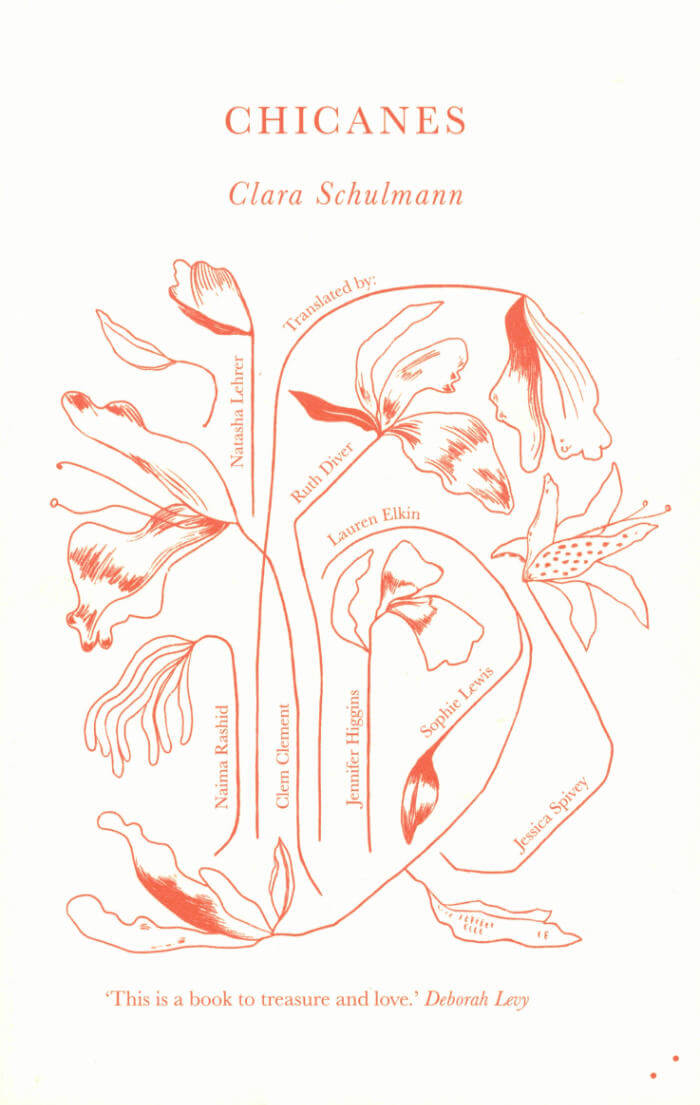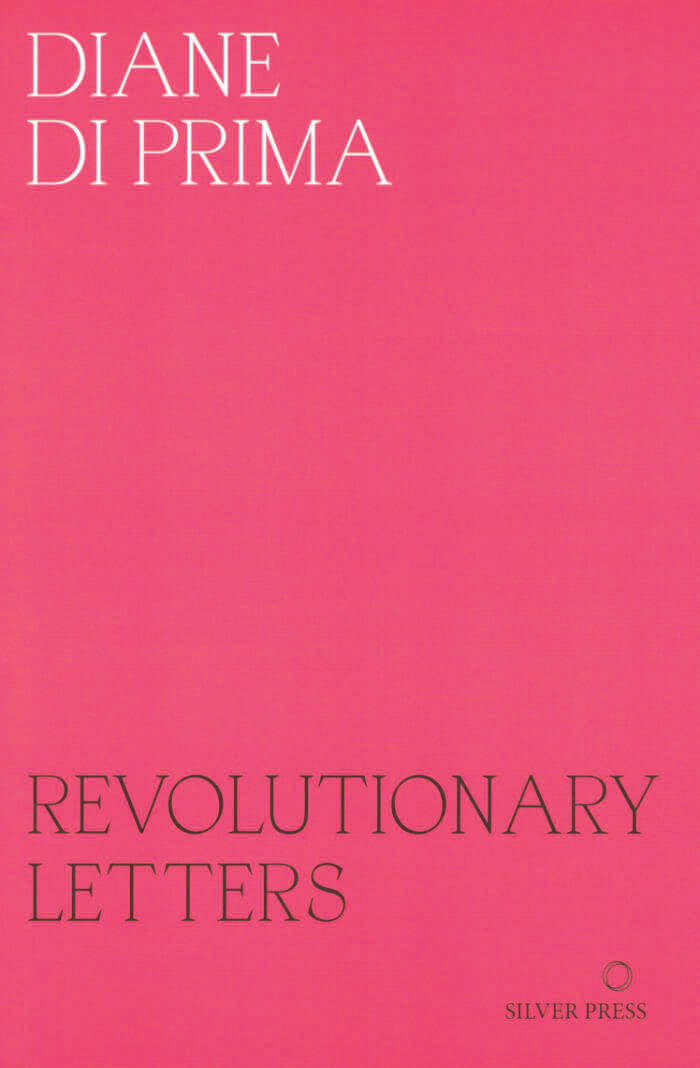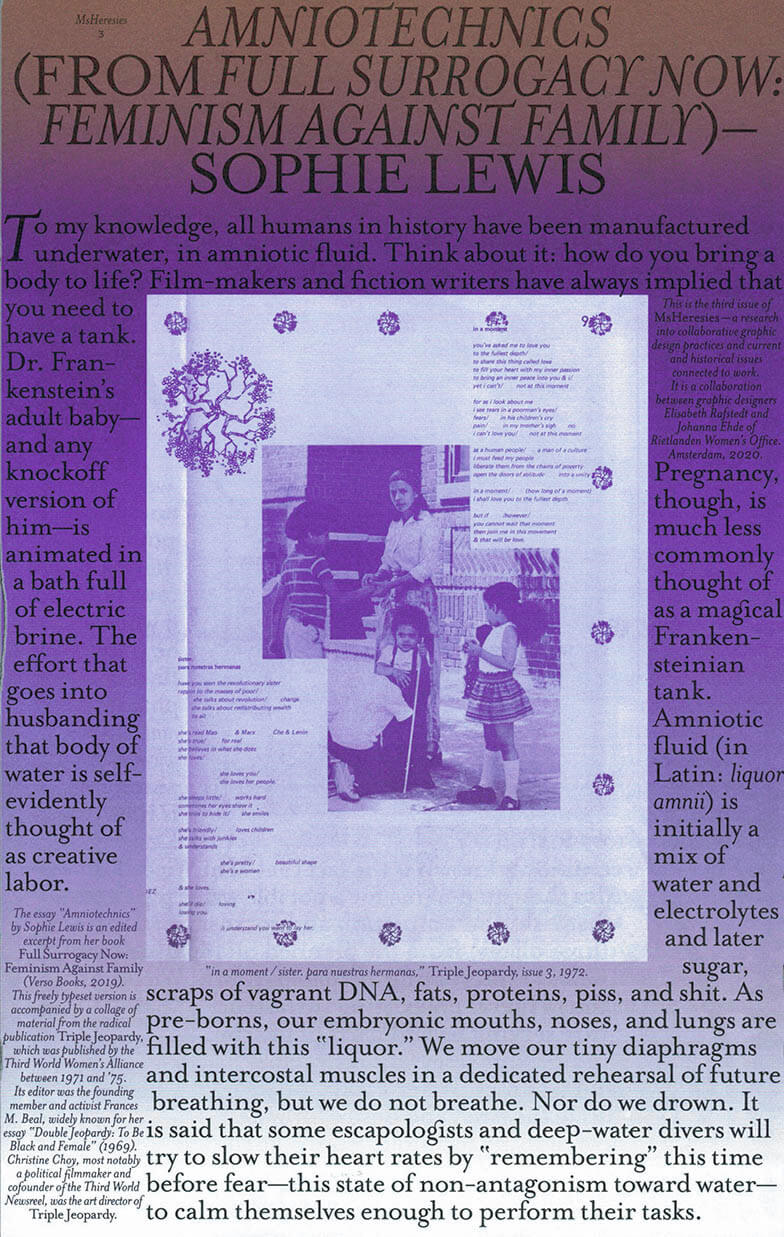Sophie Lewis
Sophie Lewis

Abolish the Family: A Manifesto for Care and Liberation
What would it be like to imagine a communism not just of wealth but also of care, love and belonging? Where the full range of human needs are met without depending on the fragile bubble of the nuclear family? That institution we are all supposed to believe will be there for us—even though so many books and films detail all the ways in which it fails. This is the difficult yet important terrain where Sophie Lewis ventures. Abolish the Family is a short, sharp shock to our assumptions about the good life and how to achieve it.
Sophie Lewis is a freelance writer living in Philadelphia, teaching courses for the Brooklyn Institute for Social Research. Her first book was Full Surrogacy Now: Feminism Against Family, and her essays have appeared in the New York Times, Harper's, Boston Review, n+1, the London Review of Books and Salvage. Sophie studied English, Politics, Environment and Geography at Oxford, the New School, and Manchester University, and is now an unpaid visiting scholar at the Feminist, Queer and Transgender Studies Center at the University of Pennsylvania.
And more

Across the Acheron
In her darkly funny 1985 take on Dante’s Divine Comedy, acclaimed French writer and activist Monique Wittig restages the journey through the circles of hell, limbo, paradise from a lesbian feminist perspective.
Never-before published in the US, Across the Acheron follows the adventures of “Wittig” and her anti-Virgilian guide through laundromats, billiard parlors, dyke bars, and picnic grounds of a 1980s San Francisco populated by hunters and their prey, lost souls, and fantastical beasts, including a robotic eagle and angelic bikers. Wittig reimagines Dante’s epic poem through a feminist and queer lens, subverting his cosmological order and upending gender identities and literary traditions. This edition brings the English translation of Wittig’s final novel back into print for the first time since the early-1990s, revised according to the author's notes, and with a new introduction by Sophie Lewis.
“Across the Acheron is a work of lesbian struggle and triumph across two kinds of hell. The hell of the classic western literary canon—and the hell of San Francisco. Monique Wittig brings all of her writerly powers and political experience to bear here, as witness to the horrors of heterosexual patriarchy and also to the possibility of another world for another life. Her work is a rare combination of deeply felt materialism and radical linguistic freedom. If we're to have another world, we'll need to create another language. She knew that, and she lived it.” — McKenzie Wark
“Even in fiction Monique Wittig’s writing is critical, prescient, brilliant, satirical, searing, and way ahead of its time. I’m so glad this work is back in circulation to revisit and revel in.” — Pamela Sneed
“In this unendurable yet compelling journey through the circles of patriarchal hell, Wittig encounters hordes of tortured women who do not struggle against their oppressors. Their brainwashing is as difficult to witness as their bloodied flesh. Only through communal activism does the seeker’s soul becomes tough enough to enter Paradise, where bare-breasted angels dismount motorcycles and offer baskets of 'cherries, strawberries, raspberries, apricots, peaches, plums, tomatoes, avocados, green melons, cantaloupes, watermelons, lemons, pawpaws, pineapples and coconuts.’ The bounties of Across the Acheron are lush and many.” — Dodie Bellamy
“A Guernica of the human (feminist) condition, a blacker, bleaker, more vengeful Alice’s tea party, this is a novel as graphic as a painting, whose brilliance its translators have creditably preserved.” — Publishers Weekly
Introduction by Sophie Lewis
Translated by David Le Vay with Margaret Crosland

After Sex
Who decides what happens after sex? The last decade has seen many significant changes to the laws governing women’s reproductive rights around the world, from liberalisation in Ireland to new restrictions in the USA. After Sex offers personal and political perspectives from the mid-20th century to the present day, setting feminist classics alongside contemporary accounts. These essays, short stories and poems trace the debates and tell the stories; together, they ask us to consider what reproductive justice might look like, and how it could reshape sex.
The writers pay special attention to people — both fictional and real — who have sought control over their sexual lives, and the joy, comedy, difficulties and disappointments that entails. But above all, After Sex testifies to the power of great writing to show us why that freedom is worth pursuing — without shame and without apology.
With contributions from:
Lauren Berlant, Joanna Biggs, Edna Bonhomme, Gwendolyn Brooks, Beverley Bryan, Stella Dadzie and Suzanne Scafe, Storm Cecile, Lucille Clifton, Rachel Connolly, T.L. Cowan, ’Jane Does’, Maggie Doherty, Nell Dunn, Andrea Dworkin, Anne Enright, Deborah Friedell, Tracy Fuad, Kristen Ghodsee, Vivian Gornick, Donna Haraway, bell hooks, Barbara Johnson, Jayne Kavanagh, Lisa Hallgarten and Angela Poulter, Jamaica Kincaid, Patricia Knight, R.O. Kwon, Ursula K. Le Guin, Natasha Lennard, Sophie Lewis, Audre Lorde, Amelia Loulli, Erin Maglaque, Holly Pester, Adrienne Rich, Denise Riley, Sally Rooney, Loretta J. Ross, Madeleine Schwartz, SisterSong, Sophie Smith, Annabel Sowemimo, Amia Srinivasan, Keeanga-Yamahtta Taylor, Judith Jarvis Thomson, Alice Walker and Bernard Williams.

Chicanes
Translated from the French by Naima Rashid, Natasha Lehrer, Lauren Elkin, Ruth Diver, Jessica Spivey, Jennifer Higgins, Clem Clement and Sophie Lewis.
As she tries to collect them for an essay she is planning to write, other women’s words begin interfering in Clara Schulmann’s life — heard on the radio, in podcasts, songs, and films; words of novelists, feminist intellectuals, friends or strangers overheard in the street. They invade her psyche, reshaping the essay that she once had in mind into a picaresque adventure which investigates the fault lines around women’s voices: and in particular those moments of overflow and excess where wayward words take seed.
Chicanes heralds a new French feminism through a meticulously orchestrated chorus of the wildest female voices, from figures in the history of feminist writing to the stranger on the street, blurring the boundaries between body and art; personal and political. A poly-translation, by eight female translators, from established to emerging, Chicanes brings the individual voice of each translator into subtle relief.

Against Ageism: A Queer Manifesto
Age! What is it good for? Absolutely nothing! (Apart from greasing the wheels of capitalist reproduction.) In this queer manifesto, Simon(e) van Saarloos weaves a wealth of militant sex-liberationist, afrofuturist, transfeminist and decolonial imaginaries into their anti-ageist sails, charting a confident course across contemporary society’s generational hang-ups as well as visiting, in some more personal moments, their own.
-Sophie Lewis, author of Abolish the Family: A Manifesto for Care and Liberation and Full Surrogacy Now: Feminism Against Family
Against Ageism: A Queer Manifesto starts with what it is not: it is not a socio-economic argument against ageism, celebrating “the elderly” as economically viable. Author Simon(e) van Saarloos is not interested in natural arguments about age, which portray different age groups as valuable because of assumed inherent qualities. Instead, this manifesto starts with an experience of childhood sexual abuse, and moves on to dissect the ways in which constructions of “age” and “youth” function to support and reproduce white supremacist patriarchy. The book includes two reproductions of works by painter Samantha Nye.
Simon(e) van Saarloos is the author of Take ‘em Down (Publication Studio Guelph) and Playing Monogamy (Publication Studio Rotterdam). They were the curator of the 2021 exhibition on Abundance (“We must bring about the end of the world as we know it” – Denise Ferreira da Silva) in Het HEM and are also the host of *The Asterisk Conversations podcast. Van Saarloos is currently a PhD candidate in the Rhetoric department at UC Berkeley.

The Material Kinship Reader
Kris Dittel, Clementine Edwards
What does it mean to acknowledge one’s closeness to, enmeshment in or even kinship with the material world? And what does it mean to question family structures – the way they organise, coerce and make deviant certain lifeforms – and dwell in other possibilities of kin-making?
Not just a jolly rethinking of objects or a polyamorous romp through relationships, The Material Kinship Reader reckons with the extractavist histories of materials and the social relations that frame much of contemporary life.
Spanning fiction and theory, the collection of texts expand the idea of an artist’s book by bringing words into conversation with an aesthetic proposition. Clementine Edwards’ artwork is the visual weft to the book’s written net. From colonial conquest to climate collapse, The Material Kinship Reader tells toxic and tender stories of interdependence among all things sentient and insentient.
Including contributions by Sara Ahmed, Hana Pera Aoake, Roland Barthes, Joannie Baumgärtner, Heather Davis, Kris Dittel, Clementine Edwards, Ama Josephine B. Johnstone, Robin Wall Kimmerer, Ursula K. Le Guin, Sophie Lewis, Steven Millhauser, Jena Myung, Aileen Moreton-Robinson, Michelle Murphy, Ada M. Patterson, Kim TallBear and Michelle Tea

Revolutionary Letters
Diane di Prima began writing her ‘Letters’ in 1968, conjuring a potent blend of utopian visions, ecological urgency and spiritual insight. By turns a manifesto for breaking free, a manual for street protest and a feminist broadside, these poems are as relevant to the convulsions and crises of today as they were fifty years ago.
During the last years of her life, di Prima worked on the final iteration of her enduring project. This volume brings together fifteen new poems with all the previously published Letters in an expanded fiftieth anniversary edition.
With a Foreword by Francesca Wade and an Introduction by Sophie Lewis
Publication: 20 October 2021
ISBN: 978-0-9957162-6-1
Extent: 232 pages
'Di Prima is one of the greatest writers of her generation.' - Chris Kraus

Electric Brine
Electric Brine is a volume of poetry and critical essays by women voices from diverse fields such as literature, geography, media studies, history of life sciences, sociology, and poetics of science and fiction, each of them central to the independent curatorial research entity The World in Which We Occur (TWWWO, 2014-ongoing) and its associated online study group Matter in Flux.
Conceived as an anthology and a register, it serves as a testimony to the initiative's long-standing work of creative adaptation and ecological inquiry through a quest to situate a vision of material politics through the lens of six punctuated pieces on flow and fluids. The literary and scientific fabulations found in these pages speak of the conjunction of lived embodiment, the materialized quality of language, and the ability to trigger political imagination through reading, writing and witnessing. Each of these strands polyperform under TWWWO, for they can be traced, retroactively, to the themes present in the live event series, to Matter in Flux's private study sessions, to the initiative's collective writing work presented in public venues and publications. Also included in this volume is an appendix documenting the years of invitation and study, intricately linked to the ideological praxis of these overlaps.
Co-founded in 2014 by Jennifer Teets and Margarida Mendes, The World in Which We Occur (TWWWO) is an independent curatorial research-based entity that collaborates with artists, scientists, science historians, philosophers, anthropologists, activists and more as it explores themes concerned with artistic inquiry, philosophy of science, and ecology. TWWWO began as a live talk-event series over the telephone and has thus expanded to other formats involving experiments with educational actions, discursive talks, and events via diverse methodologies.
Introduction by Jennifer Teets and Margarida Mendes.
Texts and contributions by Dionne Brand, Barbara Orland, Sophie Lewis, Esther Leslie, Hannah Landecker, Lisa Robertson.
Graphic design: Sophie Keij & Atelier Brenda.

MsHERESIES 3 — AMNIOTECHNICS
Johanna Ehde, Elisabeth Rafstedt
Dedicated to the incredible – and incredibly beautiful – publication Triple Jeopardy (1971–75, by the Third World Women’s Alliance), as well as the ideas in Sophie Lewis’s book Full Surrogacy Now! – Feminism Against Family (Verso, 2019). Ms Heresies 3 is reprinting the book’s final chapter, the essay *Amniotechnics.*
Each spread weaves edited material from Triple Jeopardy with Sophie Lewis’s essay. These intuitive and meticulous compositions are the outcome of looking at Triple Jeopardy through the lens of collaborative graphic design. Reading, typesetting, collaging, painting, and ornamenting became a way of designing together while attempting an homage, a re-reading, and a cross-publication friendship.

Salvage 8: Comrades, this is madness
The Salvage Editorial Collective on the Covid-19 crisis.
Including: ‘Mothering Against the World' by Sophie Lewis on ‘Momrades’, ‘The Bushes’ a new fiction by China Miéville, ‘Hookers and Other Angels’ photography from Juno Mac, ‘Prepared for the Worst’ by Richard Seymour on Disaster Nationalism, ‘Welfare State Populism and the “Left-Behind Left”’ by Kevin Ochieng Okoth, ‘A Glimmer of a Shell of a Husk’ by Maya Osborne; ‘The Phallic Road to Socialism’ by Sebastian Budgen; A newly translated interview with Daniel Guérin, ‘Nationalism After Coronavirus’ by Sivamohan Valluvan, ‘Striking in Striking Times: Capitalism’s Coronavirus Crisis’ by Gregor Gall, ‘Getting Dressed for a Pandemic’ by Camila Valle, ‘Out of the Iron Lung: A Miasma Theory of Coronavirus’ by Matthew Broomfield.
Poetry by Nisha Ramayya, this issue’s featured poet, and an interview with her conducted by Salvage poetry editor, Caitlín Doherty. Plus the return of the Salvage Editorial Collective perspectives pamphlet, and a postcard.
Salvage is a bi-annual journal of revolutionary arts and letters. Salvage is written by and for the desolated Left, by and for those sick of capitalism and its planetary death-drive, implacably opposed to the fascist reflux and all ‘national’ solutions to our crisis, committed to radical change, guarded against the encroachments of ‘woke’ capitalism and its sadistic dramaphagy, and impatient with the Left’s bad faith and bullshit.
Published June 2020

Detour/Détours (Hotel Cordel No. 1)
Cécile Menon, Dominic Jaeckle and 1 more
Detour/Détours imagines debt as a language game: as a broken pun; a break in a journey; a play on value and the meaning of money as it changes hands. Or in terms of Guy Debord’s détournement — as a debt reimagined through the integration of old works into something new.
The word debtor owes etymologically to the old French deteur. But — moving into English — its first appearance dates back to the early 13th century and — sounded out as dettur, dettour or detour — debt can be read as an elaboration on the mottled intimations of a detour with a little poetic license. A detour is a deviation, a digression; a play on our various senses of direction. Exploring the will, want or need to take the long way around — and seeking to bastardize and scrutinize our relationship with (and conceptualization of) a statement of debt — here we have a set of searching works that critique all our methods of repayment. Participating authors were given free rein to produce a piece of writing in response to these ideas, and the works included herein — five first English-language translations and five original texts — wind their way around the weight of the word ‘debt’ in ten attempts to reroute its meaning.
Questions of Worth by Noémi Lefebvre, translated by Natascha Lasorak and Sophie Lewis
Silent B by Lauren Elkin
A Problem of the Greek Type by Mathieu Larnaudie, translated by Adrian Nathan West
Emotional Debt/Speed of Recovery Matrix by Selma Dabbagh
Debt Night by Preti Taneja
The Pastoral Calculation by Sandra Lucbert, translated by Jessica Spivey
The Debt Collector by Jen Calleja
Unknown Soldier by Nicolas Bouyssi, translated by Amanda DeMarco
Good Relations by Joanna Walsh
Out of Debt by Thomas Clerc, translated by Jeffrey Zuckerman
Edited by Emmanuel Bouju, Dominic Jaeckle & Cécile Menon
Limited Edition of 300 copies
180 x 120, paperback, 78 pages